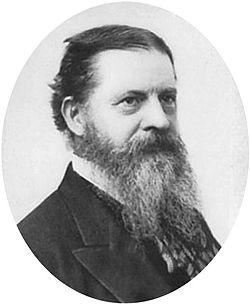tl;dr: Pre-modern communities took centuries to assimilate, either linguistically or religiously; some didn’t assimilate at all. Modern communities, under the pressure of state nationalism, assimilate within a generation.
We don’t have good data on language in Turkey. We know that the religious assimilation of the existing population there seems to have taken something like three or four hundred years: Nick Nicholas’ answer to When and how did modern Turkish become the majority in Anatolia?—from the Battle of Manzikert in 1071, through to the 16th century. According to this view, the substantial Greek-speaking Christian population of Western Anatolia in 1900 resulted from internal migration within the Ottoman Empire, from the Aegean.
Greek and Christianity remained in Northern Turkey (Pontus) and Central Turkey (Cappadocia) up until 1922.
- The easternmost edge of the Pontus (the Of Valley) converted to Islam in the 17th century, but remained Greek speaking. Some Greek is spoken there to this day.
- Substantial populations in Cappadocia spoke Turkish, but remained Christian. R.M. Dawkins recorded several settlements in which Greek became extinct in the 19th century; Cappadocian Greek itself was clearly heading towards language death; and Turkish was the everyday language in Southern Cappadocia and in other settlements like Sille where Greek was still spoken.
After 1922, the Treaty of Lausanne provided that Greek Christian populations would remain in the islands of Imbros and Tenedos (Gökçeada, Bozcaada), and in Istanbul. Most of the Greeks of Imbros and Tenedos have left; most of the Rum population of Istanbul left after the 1955 riots.
Greek-speaking Muslims arrived in Turkey in 1922 after the population exchanges; the best known such population was from Crete. There are reports that some of them still know Greek, but the majority of them have assimilated.
In Greece: under Ottoman rule, there was Turkish settlement in northern Greece (Macedonia and Thrace), and there were conversions of Greeks to Islam (Crete). The former spoke Balkan Turkish; the latter spoke Greek, though with substantial Ottoman Turkish vocabulary, particularly with regard to religion.
The Muslim population in Crete dropped from half in around 1800 to more like a third by the late 19th century, before community violence broke out and Muslim Cretans started fleeing Crete. This suggests that there was some conversion of Muslims back to Christianity (even though this was a capital offence), as the relative prosperity of the two communities shifted.
After 1922, the Christian refugees to Greece included a substantial number of Turkish-speakers. All indications are that Turkish did not survive more than a generation in Greece, although there are certainly anecdotal reports of it being used; PAOK, the refugee-based soccer team of Salonica, was known trilingually (Greek, Pontic Greek, Turkish) as O PAOK mas/Temeteron PAOK/Bizim PAOK “our PAOK”.
The Treaty of Lausanne provided that Turkish Muslim populations would remain in Western Thrace; the community has remained Turkish-speaking and Muslim, and is educated in Turkish. indeed there are indications that the Muslim Pomaks in the region, who speak Bulgarian, have shifted to Turkish because of the greater prestige of that language.
The Muslims of the Dodecanese were not subject to the population exchanges, as the Dodecanese was under Italian rule at the time. There is a small remaining Muslim population in Rhodes and Kos; I do not know if it is Turkish-speaking.
EDIT: Selim Kaymakoglu notes in comments:
Few years ago I was two months in Rhodes for fixing my boat , heard from people there was a small turkish community with 1000 people.I ve met some of them as one guy was working for the drydock where my boat was.They speak turkish with a heavy greek accent which is ofcourse natural. By the way I am turkish .


